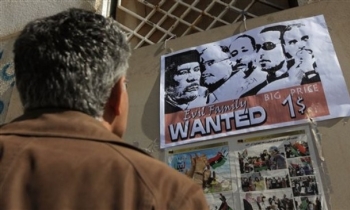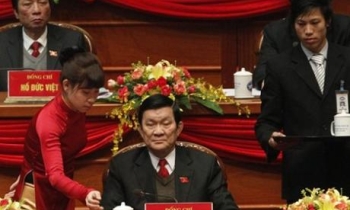A last-minute agreement between Swedish Journalists' Union SJF and the Swedish Newspaper Publishers' Association over new pay and conditions for the country's journalists Thursday averted a major confrontation between more than 5,000 newspaper journalists and the country’s press employers.
The deal means that industrial action planned to start mid-day Thursday was called off. The action would have forbidden staff from putting material on newspaper websites, something employers described as a "strike," but which the union described as "industrial action."
"We have every reason to be pleased," said SJF leader Agneta Lindholm Hulthén as she emerged from negotiations, according to the Local. A major issue in the conflict was minimum wages for journalists. Hulthén said the deal meant that many of the journalists currently on low wages would be on salaries of 25,000 kronor within three years.
The International Federation of Journalists (IFJ) and its regional group the European Federation of Journalists welcomed the “ground-breaking” last-minute agreement. A new three-year collective agreement between the Swedish Journalists’ Federation and press employers was signed just minutes before a deadline for talks that would have seen lockouts and strikes engulf the industry.
The new deal, according to IFJ, contains a number of significant advances:
- It ends shocking levels of low pay among provincial newspaper journalists and has met a union objective of a new minimum rate of 25.000 SEK (2.625 Euro) per month for experienced senior journalists;
- It gives an increase averaging ten per cent on newspaper pay scales across the board;
- It maintains author’s rights protection for all journalists working in media houses; and
- It establishes, for the first time, recognition of press, online and broadcast journalists working for media houses in the collective agreement. Hitherto only press journalists were covered.
“This is a tremendous and groundbreaking victory for Swedish journalists,” said Aidan White, IFJ General Secretary, meeting with journalists’ leaders in Stockholm as the deadline for industrial action passed.
“Ending the scandal of low pay and protecting author’s rights for all in the newsroom has been achieved by a display of unity and solidarity that led to serious and purposeful negotiations. We salute the determination and commitment of Swedish colleagues,” he said.
White said the agreement – coming soon after the court decision in Denmark last week that secured recognition for freelance journalists in collective bargaining – would be an inspiration to other unions across Europe to press the case for decent work and pay in newspapers where many employers have been imposing stringent cuts in recent years.
Björn Svensson, chief negotiator for the Swedish Newspaper Publishers' Association (TU) said his priority in negotiations had been "creating good conditions for the development of newspaper publishers and their employees - with maintained commitment to quality journalism. This we have achieved." Svensson, the Local reported, said the agreement meant major "commitment and strain" for newspaper publishers: "But we hope nonetheless that we have laid the foundations for a new phase, in which the parties can focus on their common interest in the future and in development."









